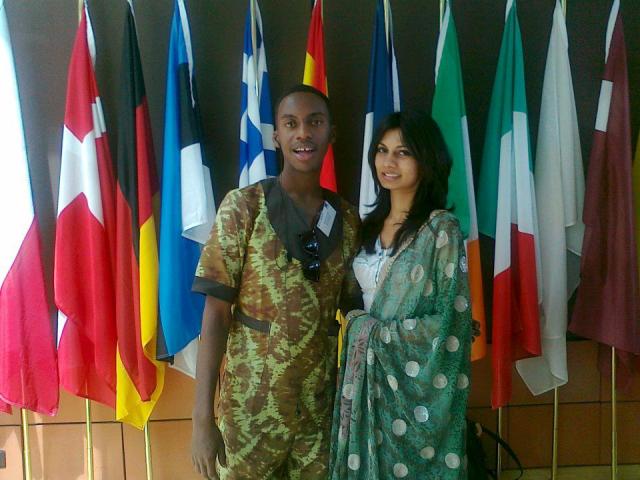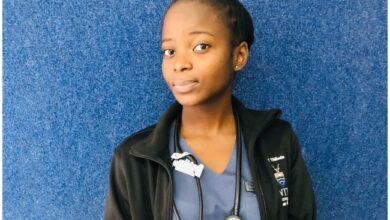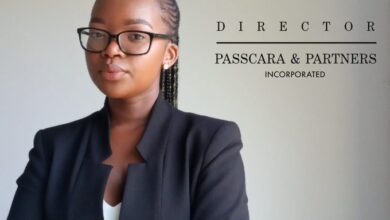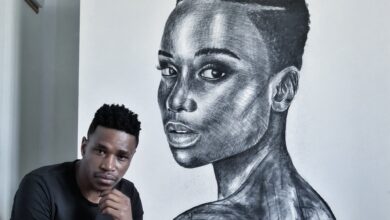Interview with former Debate National Team Captain, Michael Chavinda
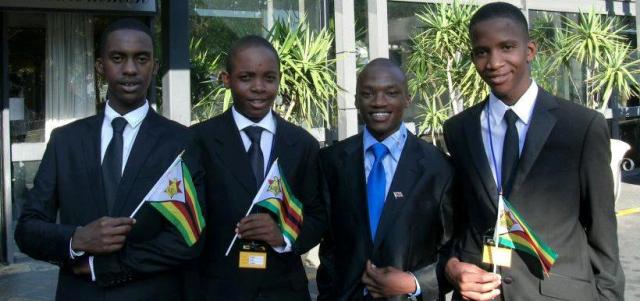
 Global change maker Micheal Chavinda has participated in a number of debates and has become a finalist. He describes himself as outspoken, charismatic and confident. In the interview Micheal shares his inspirations for debating and what the future holds for him.
Global change maker Micheal Chavinda has participated in a number of debates and has become a finalist. He describes himself as outspoken, charismatic and confident. In the interview Micheal shares his inspirations for debating and what the future holds for him.
Please tell us about yourself, who is Michael Chavinda?
Funny you should ask that because I’m at a point where I’m trying to find that out myself. If there’s one thing I’ve learnt from that all I’ve done and experienced it’s that who you are is never static. It all depends on where you are in your life and what you allow to influence you, which is also a product of what you’ve allowed to influence you in the past. Thus, I feel it limiting to try and describe oneself in a single dimension. A more appropriate question would be “Who are you right now?” And who I am right now, is a young adult trying to find his place in society and see how best I can impact that society. I am outspoken, charismatic and confident as a general description. My actions are all as a result to understand the world at many levels. I am interested by a lot of literature and philosophy ranging from Shakespeare’s Hamlet to Sir Arthur Conan Doyle’s “Sherlock Holmes” books. I love learning about the things and people around me so I always open myself up to new experiences. I hate rigidity and complacency and try and avoid them at all costs. I believe that the only way to truly understand things and make informed judgements on them is to constant exposure to these things. As a result my views are liberal and are predicated on rational thought.
I can be a bit imposing and arrogant at times but I guess those are the characteristics of any opinionated person. My interests are varied though. I love listening to music. My tastes are varied too. I listen to anything from classical to R&B. Music has always been a big escape route for me and I’m a believer in the power of art and how it can emancipate people-almost like a religious force. I’m also a big fan of dance and an advocate of the arts in general.
What inspired you to engage in debating?
It began very early in my teenage life. I had never been an outspoken child. I admired people who could stand in front of a whole crowd and speak their mind. I’d stand alone in an open space and pretend to be Winston Churchill or Martin Luther King, addressing a crowd, but I didn’t once try and participate. It was only in my first year at high school when I met Jason Shiri (who would later on become my partner and best friend), that I decided to start up speaking and engaging with other people. When we started off it was just because we enjoyed it, despite our lack of success. But as we grew in the trade and realised that it dealt with thing that affect us and our communities. I became more and more aware of politics and international relations. I’d voluntarily watch news and follow current affairs. This grew into an interest in activism because I began to see how I could impact or catalyse change. You become more concerned about the things around you if you stop to pay attention to people’s views and see the world in different perspectives. Debating has allowed me to do that and I am glad it has had such a positive impact in my life. Traveling and representing my country only made it more worthwhile because you meet individuals who share much the same insight and passion. They then become you long-time friends and companions influencing what you do and how you think. Debating is a lifestyle, not an activity that condensed into 8 minute speeches or tournaments. It’s a certain pride in one’s ideas while simultaneously having the same regard for other peoples’ ideas. It teaches a certain humility in both demeanour and ideology.
What role do you think debating can play in engaging youth on issues of relevance to their development?
As already alluded to, I think debating can catalyse a lot of social change. If done well, and seriously it allows youth and adults alike to become more aware of what happens in their communities and to develop a solution-oriented way of looking at problems. The reason some organisations, institutions and even countries never succeed is because they spend their time focusing on minor issues like who is to blame or what happened rather than coming up with efficient ways forward. In terms of youth issues, it boils down to the same thing. The problem with us youth is that we seem to think that some things aren’t applicable to us or we become so preoccupied with the modalities of today and forget that we have a place and purpose (well, we must have both) in the wider world. Debating should, however, go past talking and rhetoric. It should translate to efficacious solutions reasoned out by an eclectic body of opinions. One of the functional failures of democracy is that it assumes that everyone pays attention to all that happens around them and thus the voice of the majority is right because they are conscious of their surrounding and thus can make a somewhat rational decision. Debate allows for this assumption to be true at all levels. It cultivates the right of free speech into a wholly productive entity.
You have participated in a number of debate competitions in and outside Zimbabwe how has been the experience so far?
The experience has been unparalleled. You always find someone better than you and that excitement is amazing. The fact that you can never be the absolute best all the time prompts you to continuously work towards practicing your manner and matter. It’s also great for interaction. You meet the smartest teenagers in the world…potential UN secretary generals and presidents. And each time you learn something new about either yourself or the activity. And it’s always good to travel. That way you have a lot of stories to tell your kids when you’re older.
What does being a British Council Global Change Maker mean to you?
Being a GCM is an amazing thing for me. Coupled with all the lessons I said I’ve learnt above, it proves to be the part that prompts the action in me. GCMs are successful and driven people. Just talking to them gives you this infectious vibe to act. They are all so meaningfully successful, and they in themselves are inspiring. It’s all self-regulatory I guess. It keeps you thinking and on your feet. As a programme it is also an invaluable opportunity to teach and be taught. Being a Global Change-maker gives one access to countless resources that drive activism and advocacy. I am still yet to fully tap into all of it as this is just my first year but I have 6 more so the time is more than enough for exploration. I have always looked up to local change-makers like Gilmore Moyo, Jermain Ncube and Bongani Zikhali because I had witnessed some of their projects in action. It was something I had aspired to since my mid-teens.
You one of the Africans selected to attend the EAYS 2012 how was the experience?
The experience was enchanting the whole time. I really couldn’t believe that I had made it. It was humbling to see so many over-achievers in one building. The skills training session were invaluable. We met a lot of very established social activists who shared their work with us. I learnt that there are several ways to effect change in various societies: anything from educational buses to photography. The latter being so avidly done by Katie Holt-a Zimbabwean born photographer who has worked in numerous war torn countries and taught people how to keep a track of history and themselves through photographs. Belgium was a lovely country as well. It was quite hard to navigate through it since everything was in French or Flemish but we all found or way through the busy streets to do a little sight-seeing. Going to the EU headquarters and meeting multinational NGOs like Africalia was unbelievable. It really made me consider social work as a long term career. I was truly inspired by the works of these people. Again, it’s always nice to travel.
What have been some of your biggest achievements so far?
Well, again that question is very relative. In terms of my personal development I’d say my cumulative success in debate has been a big overall achievement. Everything from captaining the national team to being a finalist at tertiary championships while I was in high school was an achievement that would replace the previous but the collective value of these achievements is a large, more wholesome achievement. Also, being involved in the junior parliament opened up a lot of doors for in terms of my work with NGOs in the line of child’s rights. But the all -encompassing achievement is being able to balance it with all my schoolwork.
As a talented debater in Zimbabwe what opportunities has debating opened for you?
Debate has allowed me to get a world-class education without necessarily enrolling at world class institutions. It has opened a lot of intellectual doors for me. In terms of prospects, I have also got national recognition. I managed to garner a lot of government and NGO support for debating. In the process, I have met a lot of influential people in the country and worked closely with them. This has translated to a lot of internship opportunities with law firms like Coghlan and Welsh, and more recently the Mandela Institute of Development studies.
As a young Africa who do you look up to for inspiration locally and internationally?
My inspiration comes mostly from peers I have met internationally. My biggest so far is ex-Canadian captain, Debi Ogunrinde. She is a driven and passionate individual with very definite life goals and the motivation of a warlord. She inspired me to continue debating even when people convinced me it was an empty dream that wouldn’t get me anywhere. I think it’s sad when societies undermine something because it gives no immediate return. I believe dreams should be lived out fully and never trumped as useless. Various other debaters I interact with inspire me because they do what they do out of love and not because they want recognition or remuneration. I admire such qualities in people-Desmond Tutu, our late vice president Joshua Nkomo, Strive Masiyiwa and Mahatma Ghandi. Vision and persistence are admirable qualities in an individual because they drive success. They make it inevitable. What’s more special is having these qualities in spite of circumstance.
Are you involved in any youth outreach programmes? if so please share.
Yes. I am currently working with Vavezi, a child’s rights protection organisation in Bulawayo, Zimbabwe. Our calendar is set to begin in May so we are still at the prepatory stage of a lot of projects. We are, however, starting an online debate initiative soon to combat the problem of distance hindering discussion between youth.
Are there any key tournaments you are looking to participating in soon?
I am looking forward to taking part in the 2013 South African Universities National Debate Championships before starting my tertiary education in August. There I hope to go to the World Universities Debate Championships, tentatively as an adjudicator.
What do you think are the challenges facing African youth today and what do you think are some of the solutions to addressing them?
HIV/AIDS has been talked about for a very long time now but the message doesn’t seem to be getting across. Infection rates don’t seem to be dropping despite the massive awareness campaigns run each year. The problem is probably the message isn’t going across properly. I think as youth we should talk about such things more in our own circles. The best sex advice I’ve received has been from my friends in a fairly informal environment. We should raise awareness but increasing exposure or breaking communication down to a very personal level. Education is also a big problem. I don’t feel that it teaches us pro activity. We need to work towards getting youth more engaged with employment prospects or providing basic education to all youth so as to give everyone a base for any sort of employment. Vocational training is also important because it address the disproportionate distribution of resources and makes it possible for everyone to contribute productively into the growth of the formal sector.
In Zimbabwe are there any bodies that young people who would like to learn to debate can be part of? Particularly those who don’t have debate clubs in their schools?
The Contemporary affairs foundation does some excellent work training debaters and exposing them to opportunities. They run a lot of competitions throughout the year and facilitate for the attendance of a lot more. I have worked quite closely with them and I am involved in some of the training programs as a coach.
What is your dream for Africa?
My dream for Africa is wide-spread across a lot of sectors. Economically, I’d like to see an Africa that can give its people jobs, educate its people and give them the opportunity to pursue their dreams without being hindered by the survival instinct prompted by poverty or an over-exposure to poverty. Socially, I’d like to see a peaceful Africa with open-minded people who are involved in the building if their nations. I want to see an Africa with an eclectic but unified identity; an Africa that will recover from its colonial hang-over and stop discriminating itself out of growth. Black societies still hold each other in contempt and see anything foreign as intrinsically better than anything local. Furthermore, I’d love to see a racially equal Africa where skin colour has as much bearing on your opportunities as the size of your big toe.
How can the youth connect with you?
I am an active social media user so youth can be sure to catch me on Facebook under the same name or on Twitter (@ChavXO). I’d be glad to connect with them and help them with their endeavours whenever and however I can.

